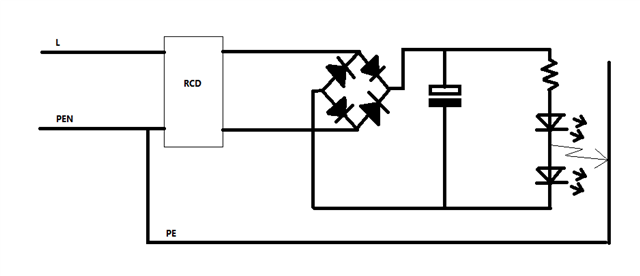Hi
I found an EV charger today with built in type A RCD + RDC-DD connected to a type AC RCD in the consumer unit, the AC RCD is also protecting 3 other circuits including sockets. I know this is incorrect because the type AC RCD could be blinded by DC currents, but I am struggling to find a regulation to reference when providing information to the customer?
Thanks
Alan

